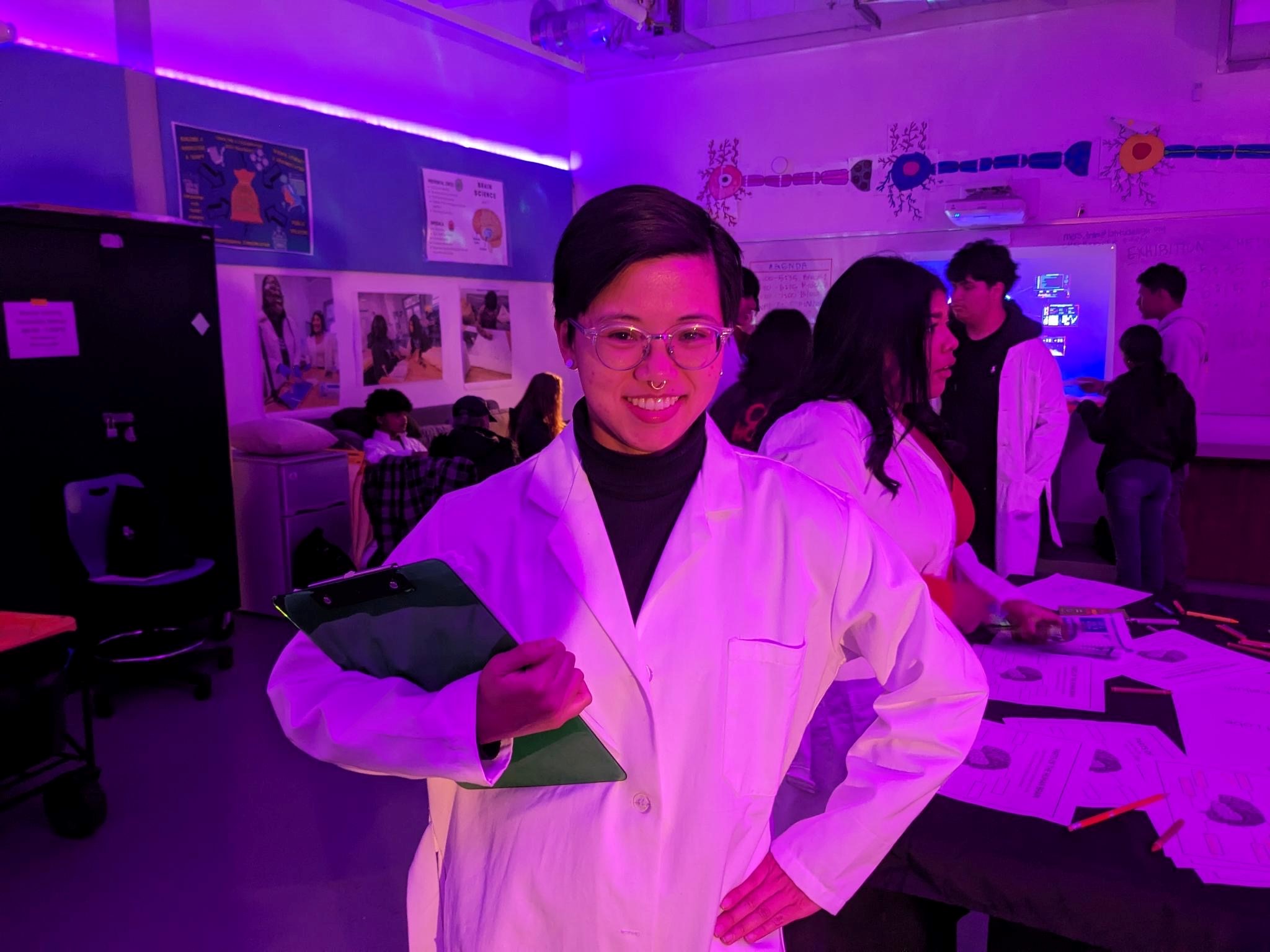
Mers (who students call Teacher T) poses in a pink lit room for their Brain-themed Exhibition last fall.
The June 2024 Voices from the Field profile is Mers Tran, a high school teacher and the Commission’s 2022-23 Educator Preparation Student Liaison. We asked them to share their journey as a new educator and to reflect on the importance of representation in the classroom.
Their responses are below.
Where and what do you teach?
I teach Biology and a Dance elective at a project-based learning school called Latitude High, located in Oakland. Although nowadays, since Latitude juniors attend internships for the entire month of May, my role during this time shifts into being an internship coach. I'm spending my days visiting different internship sites (e.g. a music production studio, a renewable energy start-up, an organization that helps preserve the local watershed) and helping students develop their professional skills.
In what ways do your students inspire you?
Students are way more self-aware and politically-aware than I was when I was their age. They also bring out the silly side of me that I feel like wouldn't be seen in other professions.
What does LGBTQIA+ inclusion mean to you?
To me, it means systemically designing for LGBTQIA+ individuals in mind. As a genderqueer teacher, it meant the world to know that my school email, my school ID, and all school files could use my preferred name from the very beginning. I didn't have to advocate for this information to be changed, and the culture of the school protects the use of my name and pronouns. More needs to be done so that LGBTQIA+ staff and students not only feel included, but are protected in a place where they feel like they can belong.
Including LGBTQIA+ students in a school is not enough when queerphobic and transphobic bullying contribute to why LGBTQIA+ students are more than four times as likely to attempt suicide than their straight and cisgender peers. Simply listening to what LGBTQIA+ people need and are currently fighting for is a start. The students at Berkeley High, where I did my student teaching year, have just won a fight for more all-gender bathrooms on campus after years of complaints.
What would you tell high school or college students who are considering becoming educators?
I'm more likely to listen than to tell them anything. I'd ask why they're considering becoming an educator, what grade/subject they would teach and why, what they anticipate being difficult about teaching, what they think teachers do on an everyday basis, etc.
Why did you feel it was important to join the Commission?
From a commissioner perspective, it's important to root decisions from the student teacher experience. The decisions they make can be the reason a barrier to become an educator is removed or added. From my perspective, it was important to see how these experts from different facets of education come together to make decisions. What data did they use and need to make a decision? How did they consider and measure the impacts of their decisions? How did they prioritize what decisions should be made?
Why did you become a teacher?
I'm obsessed with learning. Being a teacher is a sneaky way to be a student for life.
.png?sfvrsn=c28b72b1_10)
.png?sfvrsn=cd8b72b1_0)